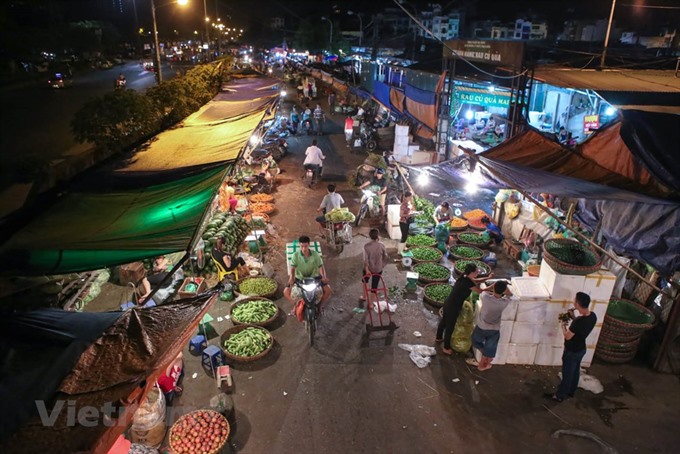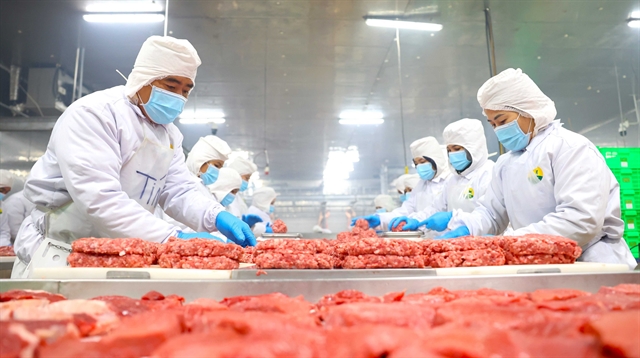 Society
Society

Regarding the country’s key food distribution networks, wholesale markets have not yet undergone proper planning and development so far, according to experts.
 |
| Long Biên Market, the capital’s largest wholesale market for fruits, at night. — Photo vietnamplus.vn |
Hà Nội – Regarding the country’s key food distribution networks, wholesale markets have not yet undergone proper planning and development so far, according to experts.
Thus, policies are necessary to develop wholesale markets to ensure food safety standards and clear origins of products, according to opinions at a recent meeting on wholesale markets in Việt Nam.
A recent report by the Ministry of Industry and Commerce (MoIC) showed that by the end of 2017, there were 8,539 markets, of which 83 were wholesale markets, accounting for 0.97 per cent.
Most wholesale markets were in the provinces of Thanh Hóa, Quảng Bình, Đồng Tháp, Tiền Giang, Hưng Yên, and Hà Nội and HCM City.
The markets sold various products, from vegetables, meat and seafood to dry and semi-processed foods, said the report.
Nguyễn Văn Hội, vice director of MoIC’s Domestic Market Department told online newspaper vietnamplus.vn that along with modern retail models, wholesale markets had an effective network of product distribution which plays an important role in connecting producers, distributors and consumers and contributing to enhancing business capability of Vietnamese wholesalers, retailers and enterprises as well.
Additionally, a system of wholesale markets also helps stabilise prices and create jobs for labourers who live nearby.
Despite their important role, investment in wholesale markets has been modest, reported the paper.
Most wholesale markets had sparse infrastructure with few services, unhygienic environments and lack of fire fighting systems.
In Hà Nội, there were 6 wholesale markets. But they were on such a small scale that market prices could not be regulated.
Managing the quality of products at wholesale markets was also difficult, said Đào Hà Chung, president of HCM City’s Hi-tech Association.
“Vehicles transporting goods to the markets must be tightly controlled to ensure food safety”, said Chung.
“The wholesale markets must be equipped with systems to assess the origins of goods as well as their supply chains”, he said.
The prices of goods at the markets must be transparent and could not manipulated, he added.
Sharing experiences of developing wholesale markets, Ricardo Lopez Piestch, a representative from Spain’s Mercasa Group, which owns 23 wholesale markets in Spain, said that one successful idea was to ensure the presence of farmers at wholesale markets.
This would help farmers to understand market demands, he said.
Food safety was tightly monitored by inspectors. This was an important factor for the quality of wholesale markets, he added.
Vũ Duy Đông, head of the Domestic Market Department said to further develop networks of wholesale markets nationwide, it was necessary to have policies that encourage private investors to upgrade old markets and build new ones.
It was essential to monitor the quality of goods and food safety at wholesale markets as well as to train professional market management staff. – VNS




